Hello and welcome back to What China Wants. In today’s episode we review China’s 2022 and its relations with the rest of the world. We also look forward to what we can expect from 2023.

Here is a summary of our discussion:
2022 was in many ways difficult for China. Its economy spluttered, there were protests against zero-COVID and Xi Jinping himself, and Beijing was demonised by many for its tacit support of the invasion of Ukraine.
Relations with the West declined further too, with the US passing more legislation to contain China, and spats with Eastern Europe.
It was also the year that Xi Jinping cemented his rule as the most authoritative leader since Mao.
2023 will likely be the year that China re-emerges into the world, although how successful their re-engagement will be (especially with the Global South) depends on what countries think of their tacit support for Russia in Ukraine and the state of the Chinese economy. Some countries, like Zimbabwe, have brought in legislation that can be seen as restricting China’s influence.
In terms of the economy, 2023 will be a year of adjustment post-zero-COVID and will reveal if there is any long-term damage to the economy.
You can also listen to the podcast on Apple, Amazon, or Spotify.
As always please do share, comment, and subscribe. We’ll be back soon with more What China Wants.
Many thanks for listening.
(In the meantime, if you would like more information about the Evenstar Institute and our research, then please email me sam.olsen@evenstarglobal.com)
***
Here is the transcript:
Stewart Paterson: Hello, and welcome back to What China Wants with me, Stewart Paterson, and Sam Olsen. Today we are going to review 2022 as a year in China, and look forward a bit to what we might expect in 2023. Clearly, it has been a very eventful year in 2022, with multiple contenders for the most impactful events. Sam, from a political point of view in China, what do you think the most important events of 2022 were? And how are they likely to carry forward into the coming year?
Sam Olsen: Hello Stewart. Yes, as you say, there are a great deal of news stories that came out in last year, which could make the top three, top five or top 20 in terms of important announcements or activities. But I think that if you could split it into the most important in the short term, and then perhaps most important in the long term, short term definitely was the zero COVID abandonment, and the fact that China is now opening up to the world again.
It is hard to remember before three or four years ago when COVID struck, China was really opening up more and more to the world. As you know, I am sure you can talk about this at some point, China was doing more to attract Wall Street and the city, and there were lots of people who were thinking more in terms of Chinese investment in the UK and elsewhere. But in the last few years, most things have gone on to heavily reverse, and what we have now is a situation where China is basically cut off from the rest of the world and keeping its people very much locked down, all of which is changing now.
So first of all, I think that we might see a lot of pent-up demand from Chinese tourists and Chinese outward-bound businessmen and women, that would probably be quite a thing in 2023. But also China is going to start actively re-engaging with the world diplomatically, politically, militarily, much more than it has done in the last few years. I think that new areas of competition or dispute will arise between China and the West as China does assert itself more on the global stage after COVID.
SP: Sam, just on the opening up again, and the Chinese tourism, China might want to open up its borders to let its citizens travel again, and let those returnees who want to come back to visit family or what have you travel. But the rest of world seems to be pushing back a bit against that, isn't it? I mean, the idea that this is a unilateral decision which the Chinese seem to assume, is quite telling, isn't it?
SO: Yes, but I think that the issue that people are seeing about Chinese people coming over around COVID, that is not something that is going to last for more than a few months, I do not think, unless things go really badly wrong with the healthcare system in China. But I think that outside of Western Europe and North America and Australia, perhaps Japan and Korea, the Western alliance as we like to call it, there is an awful lot of appetite for Chinese visitors to come back, because bear in mind that that means that they will bring money with them in the form of tourism, they will bring investment with them in form of businessmen and women. There are a lot of countries in the world who want to actually engage with China and feel that they have been cut off from China in the last few years. So, I think we will see a resurgence in Chinese political, diplomatic activity and business activity over the next 12 months.
But in terms of the economic side, maybe this is a chance for me to ask you Stewart before we go back to the longer term political stuff that I would like to talk about. In the short term, economically, how is China doing? Are we looking at a thriving economy and is 2023 going to be even better?
SP: Well, 2022 has been a disaster really economically for China. If we look at some of the numbers, corporate profits in nominal terms are down about 4% through to November, but that hides the fact that obviously it was a boom year for energy and some mining companies because of commodity prices. So manufacturing profits in nominal terms are down about 13%. The state-owned enterprises (SOEs) actually saw their profits flat, slightly up so it was the private sector and foreign companies that were looking at sort of 8% or so falls in their profits in aggregate including the booming sectors. So that was not great. Retail sales were about flat for the whole year, but going into the tail end, they were shrinking rapidly, about -6% in November, we do not know the December number yet. Obviously real estate has been a massive drag. You have got land sales that have more or less halved by value and area. You have got the sale of new residential properties down about 26% for the year as a whole. But the recent data towards the end of the year is suggesting much larger numbers than that, so minus 40% or so.
Within the investment side outside of real estate, again, obviously the official numbers are saying up 5% for the year, but that is very much dominated by SOEs, up 10%, with the private sector flat, and investment by foreign-invested companies shrinking. The industrial production numbers are flattish, but that was helped largely by autos in the early part of the year, and auto sales in the latter part of the year have started to fall very dramatically. And then you have got the trade side. Obviously, the trade side is a function of two things that the weakening global environment which China faces and the weak domestic economy from a point of view of retained imports. And so we have seen growth and trade tailing off towards the end of the year. So we are going into next year, leaving aside the sort of paradigm shift, if you like, in COVID policy, it has been a bad year, and it has been getting worse, and we're going into the new year with heavy negative momentum.
Recovery in China's economy might or might not be forthcoming as a result of the change in COVID policy, depending on how the health situation impacts the economy. However you look at it, until the base effects start to get very easy towards the middle of the year, I would not get too excited about China's growth. And then, of course, the secular trend in China's growth has been down pre-COVID that is. In my view, and we have talked about this before, the sort of narrative that China's economy is now 12%-14% on official data in real terms than it was pre-COVID, I think that that conflicts quite heavily with the lived experience of Chinese people, which does call into question, obviously, the veracity of the economic data. Even leaving that aside, it is hard to see that COVID or the three years of this hiatus, have done anything to structurally improve China's growth prospects. Therefore, a resumption of that downward trend in growth, post perhaps a COVID-induced rebound or the base effects from that rebound, it is hard to think that China's growth situation is going to improve structurally as a consequence of the pandemic.
SO: So it is interesting you say that, because I think one of the things that we need to discuss is the political stability of China. In effect, I think we have basically got Year Zero in terms of Xi's new rule now. He is unassailable as leader for at least the next five years, and zero-COVID has gone out the window and they are re-engaging with the world. I think politically, this is going to be him reinventing himself, reinventing China, looking to change the way that China does things. There is not going to be more of the same as usual. I think a big part of that is the fact that they know that the economy is spluttering, and they know that they have reached an inflection point. We spoke about this before, but they cannot keep building high speed rail between minor cities to get them out of an investment hole. And they cannot keep assuming that the rural population, 600-700 million or so people, who we spent many hours talking about is, is functionally illiterate, has got huge problems with unemployment and so on. They cannot assume that that is a problem that is just going to stay hidden.
And so, they do know lots of things need to change. And with Xi's new five-year term starting, I think we will probably see a broom sweeping through a number of issues internally, or at least trying to sweep through them, whether that actually works or not, is to be seen. But that will reflect on China's influence abroad as well, because remember, they have made it very clear through dual circulation, that it is not just about what happens internally to China, and what happens externally, and never the twain shall meet. They are both part of the same coin now. That is why I think we are going to see China, Xi Jinping and the Communist Party acting out a number of reforms internally and externally. And the question is (a) will the work internally? and (b) will they work externally? And what will the rest of the world think of this new approach that we think China is going to take?
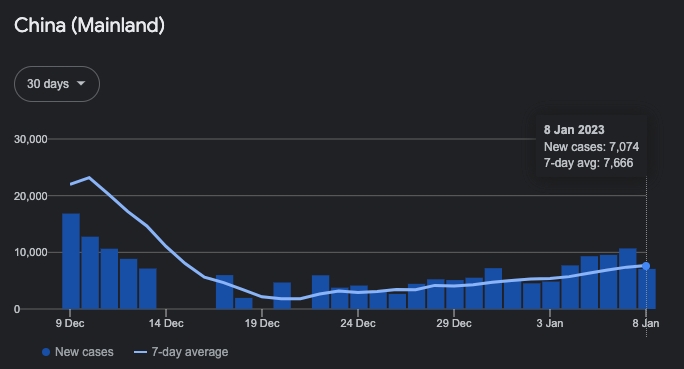
SP: I suppose Sam there were lots of competing events for the top spot in terms of political change, but Xi's third term and his sort of assumption of power beyond the former limits that used to constrain an individual's political career, has coincided with what appears to be a complete U-turn in his flagship policies. So zero-COVID is one, obviously. But in the economic sense, the Working Party did not mention common prosperity at all. So, in fact, the irony here seems to be that Xi's assumption of absolute power, which is how it is being portrayed by some people, seems to have coincided with a complete U-turn on the policies that he stood for. Now, obviously, the reality might be a little bit more nuanced than that, but some commentators are sort of pointing to the idea of a soft coup, in the sense that the man's the same, but all the policies are different, and that there is an element of pragmatism and reality coming back and ideology is being downplayed.
SO: Potentially, but this is to be seen, and I am not sure that ideology is going to play second fiddle this coming year. I think the question we have to ask ourselves is, is ideology and the political side more important than economic pragmatism? And I would suggest that there is little evidence that President Xi and the upper echelons of the CCP are going to turn their back on the move that they have made, in recent months, perhaps years, towards greater political control over the country, and away from that economic pragmatism that was so much in evidence in the last few decades. The fact that Wang Huning is still there is important. He is a senior adviser to Xi Jinping and has been there for the last three administrations, and we believe is behind the 'red reset', that reassertion of political control over the country. The fact that he is still there, that he is still at the forefront of things, makes me and other commentators think that it is very unlikely that they will change their political stance. Plus the fact that Xi Jinping is not as secure as many think he is, we are convinced that because of various things that we've spoken about before on this podcast. If that is true, then him releasing the political reins at this point and relaxing things would be a gamble. And I do not think he is the kind of man to gamble, especially when it comes to his own rule.
But that brings us on to another element, which I think we need to talk about, which is how that political control relates to relations abroad, because the more political control that is asserted by Xi, and the CCP, for example, in cracking down on human rights, and I say that candidly, because, obviously, in China it is not considered quite the same thing, across the population as a whole. But also, all the elements of internal control, gives succour to those people in the West, who believe that China needs to be called out for these actions. I think that if we do have more political control from Xi, and we do see a tightening of that control, then this is going to be more problematic for Western-Chinese relations. Do you think that you agree with that, Stewart? Or do you think that actually, in the West, people are beginning to give up on worrying about what happens internally to China?
SP: Well, let's go back a year to the start of 2022 and look at China's standing in the world then versus now, what our perceptions of it might be. I would have thought that China's support for Russia in Ukraine has been reasonably damaging to its reputation. I am not talking about the western democracies here, because clearly, the reputation was damaged there already. But in the Global South, to see your major trading partner support effectively the extinction of a nation state by an authoritarian giant neighbour, must have rung alarm bells with political leadership of those countries. Furthermore, I would have thought the military performance of the Russians and their equipment has been damaging to the reputation of Russia, as well. And so, for the arc of authoritarianism, I think it has been a bad year, 2022. And China's attempt to re-engage with the rest of the world, if that is the right way of looking at it, I think is going to be fraught with problems.
I agree that there are a number of countries for whom Chinese tourism is very important, they will welcome the resumption of that flow. But I think that China's going to find it harder going than it was pre-pandemic, in terms of bringing people into its economic orbit and exerting influence over them, not least because I think that people are well aware of the fact that there is an increasing element of smoke and mirrors in the economic power of China, and the opportunity that it presents for its potential trading partners. That narrative of "your economic future is intrinsically linked to ours" is starting to break down. I think that it is more nuanced than perhaps some would believe in terms of, "China's back, and therefore it is business as normal in terms of economics."
Sam Olsen: Yes, I see what you are saying, and I think there is a lot of truth to that. I suppose the caveat I would have is that one of the key levers that China has and asserted its influence globally has been through elite capture. That is something that I think is going to continue, and is continuing. Plus the fact that they are using digital infrastructure and rolling out high technology products, which just are not available or are too expensive for many countries being sourced from the West. I think that all the foundations for China's influence globally that we have spoken about, that we have written about through the Evenstar Institute, all those elements are still there.
The fact that China has enormous economic resources that it can deploy abroad means that politically, and especially using elite capture, there will still be many friends for China on the world stage. I think there will be challenges, for example, about "why are you supporting Russia?" But there is still a lot that China can give the third of the world that is non-aligned, and outside of the Western bloc and the China-Russia bloc. I would be very surprised indeed if China did not make further inroads. And that is especially because still the West, despite so many warnings, despite so much effort by some people within Western governments to point out that the West is really not engaging as much as it should do with the rest of the world, compared to China, the Western governments are just still giving talk and no action.
SP: Well, is that right? I think the West is engaging with the developing world in the Global South. You are seeing G7 offering to finance alternative energy sources to help the likes of Vietnam wean themselves off coal. Clearly, the irony there is that China dominated the new energy sectors that are the alternative to coal, up to a point at least. I think that the West is engaging, and I would also slightly push back on the 'China's friends' point. To my mind, the Global South does not necessarily want to be friends with China or enemies with China, it is just pragmatically looking at what China has to offer, which I think was the point you were trying to make. And what China does have to offer is capital, and they have in the past been very willing to splurge capital in return for resources or influence and what have you.
But you know, we are going into a year of global recession, probably, or at least a stressful year for the global economy. And this is going to be the first cycle in which the Chinese have had substantial amounts of capital at risk around the world. Watching how they react to that, and how the recipients of their largesse react to the deterioration in their ability to service it, I think is going to be very interesting. I saw the other day, for example, that Zimbabwe have banned lithium exports, so the processing will have to take place within the country, which is not dissimilar to what we are seeing or have seen in Indonesia and the Philippines with regards to nickel. And so, I think maybe there is going to be a trend of the Global South pushing back not just against Europe and the United States in terms of the terms in which investment comes in, but also against China and trying to capture more value. I think the playing field has become more competitive, and the resource rich countries that China sort of depends upon in many ways, are becoming much more aware of the economic and strategic value of the resources that they have.

SO: Yes, I would agree with that, and it is certain that the smarter countries in the developing world and that non-aligned sector will take advantage of increasing Chinese-Western animus to get a better deal for themselves, as Indonesia did with nickel and as you said about Zimbabwe. But there are many other things that these countries can do to play one side off against the other for the betterment of themselves.
SP: So Sam, in terms of US policy towards China, and China's response to it, clearly, one of the major events of the year was the imposition of export controls on high grade chips and high grade semiconductor manufacturing equipment from the United States. Do you think that this marks a sort of shift in American policy towards China, away from just rivalry towards containment? And if so, do you think it will be followed up in 2023 with more measures aimed at containment?
SO: In November last year, Xi Jinping and President Biden met, and they came away from that with not much to say for themselves other than the Chinese press reporting that Biden had agreed Five No's, one of which was 'No' to abandoning the One China policy regarding Taiwan. Another No, which I think was more important potentially, was that Biden had apparently agreed not to contain China. That was funny because in October, so just before, America had announced a ban on the export of advanced chips and associated technologies to China, especially those around artificial intelligence, robotics, etc, all those needed for the advanced technologies of the future. Without a doubt, this was aimed at containing China, because there is a widespread fear in American military that China is catching up, and after all, China's got a bigger fleet now. But also, in terms of commercial opportunities, American companies feel they're perhaps losing ground to Chinese ones. And so, stopping China from able to develop very, very advanced chips is something that fits nicely with American policy.
Obviously for China, this is a big issue, because they have put many eggs into the basket of high technology growth, and being a world leader in high tech. And if they cannot get the chips, and they cannot get machines to make those chips, that that causes a problem. So, I think it is fair to say that America is trying to contain China and we have had a raft of legislation this last year from the US and in associated areas, which I think can be and are looked at by China as being an effort to contain them. I expect to see much more of this in 2023 as American hawks get the bit between their teeth. And the interesting thing is, is that China so far has not pushed back on this chip ban. It has not also pushed back on attempts to stymie Huawei, which is a national champion. But I think that in 2023, with renewed assertiveness at home and higher demand on the nationalistic elements of Chinese policy, I would be very surprised if we did not see some kind of pushback against American attempts to contain them. What that would look like, I do not know, and I think no one knows. But we should be aware that something is probably going to happen in that regard. And that, in turn, will probably lead to prospect by America, which of course will drop relations even further.
SP: Sam, finally, on the politics and the international side, we have not really mentioned Europe yet and the EU and Chinese relations there. How do you see 2023 panning out? I think, obviously 2022 has been dominated by Ukraine, and China's implicit support for the Russians has, I think, alienated public opinion in the EU, but maybe not the elites quite as much as the general public. What do you think we could look forward to in 2023, in terms of European-Sino relations?
SO: So the Ukraine war, I think, was a massive watershed in not only relations between Europe and Russia, but also relations between Europe and China. The fact that China has not done anything really to undermine Russia has really gone down badly with many people in Europe, and that was highlighted by two things. First of all, in Eastern Europe, the Baltic states basically pulled out of the 17 Plus One arrangement with China, which was meant to showcase Chinese-Eastern European relations, and that has gone very badly wrong for China, partly because of the Ukraine war, but also because of China's bullying of Lithuania when it decided to do some outreach to Taiwan. And so, Eastern European relations with China are not going very well, with the exception of Serbia. The Serbian President has repeatedly called Xi a brother and a friend and rolled out the red carpet for Chinese investment there. But that aside, I think that Eastern Europe has really gone quite cold on China.
Western Europe, has also been quite sniffy about China. The fact that Scholz, the German Chancellor, went over to China recently, and that went down so badly in Western Europe, I think the reaction there does show how people have begun to turn against closer relations with China. In the UK, now, we have seen the UK establishment really get a bit cross with China, and that came to the fore with a ban on Huawei, but it is becoming more and more prevalent. The fact that Rishi Sunak said that that China was a systematic threat to British interests and values a few months ago. I think that was incredibly important in terms of laying the groundwork for a more hardline approach to China really taking hold.
So I would be very surprised if 2023 saw anything like the good relations that we have seen between Europe and China in the past. And in fact, I would be confident in saying that things are going to get a lot frostier. That said, China will make every effort to try and bring Europe more on board because after all, if they have got problems with America, then it is better to try and at least get some Western allies. Whether they are successful and how they actually go about doing that first place, I am not sure, but 2023 will be an interesting year for European-Chinese relations. So that is the politics taken care of, what do you think the highlights, from an economic point of view, will be for 2023?
SP: So I think, Sam, the key issues are this. Firstly, how dramatic is the knock-on impact from the real estate market, because what we have seen in 2022, has been obviously, under zero-COVID conditions, the property market continuing to deteriorate. And we are now in the second year of this, so it is not just base effect, the market is continuing to look really soggy, and developers are under a lot of financial pressure. And remember, developer liabilities, both to the banking system and the shadow banking system are around 70% of GDP. So it is a systemic issue that could pose a threat to Chinese financial system. And it remains a threat, we are just further into it. I think the second issue is how does the Chinese consumer respond to the COVID policy reversal? Is there a blip in consumption as people splurge some savings? But then does that actually manifest itself in a recovery of domestic production, and what have you and generate momentum? Or is it a one off, which then sort of leaves the end of 2023 looking really rather soggy again?
I think the third issue is what happens to investment in China? Do we see the private sector and the foreign-invested companies coming back to China showing confidence in the regime, confidence in the long-term outlook for growth in China, or again, is it just a sort of base effect, relief effect, that leads to a sort of one-off recovery in economic activity followed by a rollover again. And so actually, in a funny way, I think what we are going to be looking at in 2023, is really what is going to be happening in 2024. 2023 is clearly going to be a very confusing year in China, economically-wise from the data perspective, because of all the dynamics with regards to the opening up of the economy again, and the impact of COVID. So in very much the same way as in the G7 economies, the Western economies, because 2020 was so bad 2021 was always going to be good. But what really was interesting was the lack of follow-through into the second half of 2022. We are now going to go through the same experiment in China, and 2024 will show us what the long-term damage of China's economic and COVID policies have been, and I think that will be the interesting phenomena.
SO: Great well, a lot for our audience to unpack there. And let's see if any of the things that we have spoken about for 2023 actually come true. So I look forward to discussing this again in January 2024. In the meantime, thanks everyone, for all your support. What China Wants continues to flourish, and we have got so many new listeners from all over the world, and we really appreciate your support. Thank you so much, and Stewart and I will be back next week for more analysis on China. Goodbye.






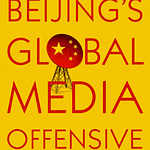
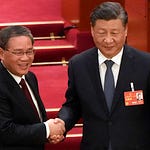
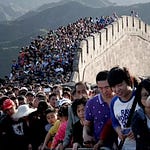
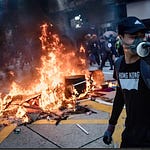


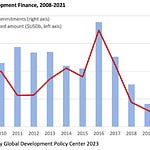
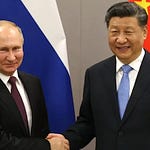
Episode33: 2022 in Review, 2023 in Preview